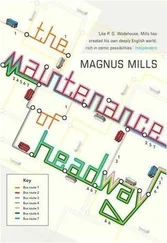Not long afterwards Greylag headed into the auditorium. Soon I heard the orchestra striking up, and I knew that for the moment at least he would be happy in his work.
For me, though, there was another revelation in store. Once Greylag had left me I resumed my duties in the box office. I’d been busy for about half an hour arranging the tickets according to their different colours when I happened to look out of the window. To my surprise I saw Sanderling at the top of the steps. He stood perfectly still, facing the street, with his hands clasped behind his back. He was wearing his dandy coat, and the buttons were fastened all the way up to the collar. I dashed straight outside to speak to him.
‘Sanderling!’ I said with glee.
‘Greetings,’ he replied.
‘What are you doing here?’
‘Front of house,’ he said. ‘They thought I looked the part.’
‘Who did?’
‘The people at the employment exchange.’
‘Well, yes,’ I said, glancing at his tightly buttoned coat, ‘now you come to mention it you do.’
‘Thanks.’
‘How much are they paying you?’
‘An anvil a day.’
‘Same here,’ I said.
Thus we were united in poverty.
However, it turned out we weren’t as poor as we first imagined: our wages included free board and lodging. The accommodation was in an annexe at the rear of the concert hall, and a little later we went to have a look.
It was all rather disappointing. Priority had been given to members of the orchestra; Sanderling and I were a mere afterthought. Personally, I thought that the musicians were being unduly mollycoddled. They each had a private room with hot and cold running water and a view over the city. Sanderling and I, by contrast, had to share a kind of broom cupboard fitted with bunk beds. Also, we soon discovered that a tram went past our window every ten minutes. Despite these drawbacks, Sanderling was enthusiastic.
‘We used to have bunk beds at the admiralty,’ he said. ‘They’re great fun!’
Maybe so, but I suspected Sanderling was the sort of person who fidgeted about in bed. I had a feeling that if he lay in his bunk all night dreaming of dancing girls, it would be me who didn’t get any sleep.
Over the next few days it became evident that there were influences bearing down on Greylag over which he had no control. He may have been Professor of Music but he did not have a completely free rein; quite the opposite in fact.
One morning there appeared on the noticeboard a programme of forthcoming performances. Apparently the orchestra would be playing the entire works of a composer who happened to be a former resident of the city. It was the centenary of his birth and the citizens wished to celebrate it with a music festival in his name.
Now this was all very well on the face of it: they were clearly proud of this man and regarded him as their greatest (perhaps only) composer. Nonetheless, as soon as I read the notice I began to have misgivings. This was the same composer whom Greylag had described to me as a ‘fake’ all those months ago. I remembered that he’d been totally dismissive of his first symphony and even suggested he’d made it up as he went along. Now Greylag was being asked to perform all of his works: the programme included nine symphonies, seven overtures, five quartets and three sonatas for piano and violin; also a tone poem and an orchestral concerto. Poor Greylag! He must have been in turmoil! Privately I conjectured that this was the real cause of his disquiet.
Even so, he gave the outward impression of someone who had embraced the festival wholeheartedly. First of all he researched and collated all the composer’s manuscripts. He spent hours locked away in his study examining the relevant scores and preparing them for performance. Then he set about rehearsing the orchestra. It was going to take several weeks to work through the whole series, but by employing his usual thorough methods he was soon fully into his stride and the festival promised to be a success.
We received frequent visits from senior local figures, including Merganser, Gadwall and Grosbeak. They constantly enquired about the progress that Greylag was making; they asked if he was happy with conditions in the concert hall; and they reminded him that if there was anything he required he only needed to ask. By thus encouraging Greylag I speculated whether they were seeking reflected glory, in the way I had unashamedly in the recent past, or if they indeed believed in the talents of their home-grown composer. He was, after all, fairly famous; we even knew his name in Greater Fallowfields.
Personally, I quite liked some of the tunes I heard in rehearsals, but I’d learned during my tenure at the cake that tunes alone were not enough. Greylag’s search for melodic discipline had taken him far beyond mere ‘tunes’. His compositions allowed much more generous living space for his melodies, and this was the difference between his work and the collection currently on offer. I noticed at the beginning of each rehearsal that Greylag drew a deep breath as if bracing himself against what was to come. It was plain to me that he underwent a kind of torture whenever he performed these pieces, but his patrons never guessed a thing. Occasionally they looked in at practice sessions, standing inconspicuously (or so they thought) in the shadows. Afterwards, when they departed, they never failed to give nods of approval.
Meanwhile, posters started to appear all over the surrounding area: the composer’s portrait was to become increasingly familiar over the ensuing weeks. Even Sanderling was aware that there was a big festival drawing near, though as usual he managed to get hold of the wrong end of the stick.
‘I presume there’ll be dancing as well as music, will there?’ he ventured late one evening as we lay in our respective bunks.
‘Possibly,’ I said. ‘It depends who turns up.’
‘Yes,’ he said, ‘I suppose you’re right.’
He didn’t pursue the subject further, but for the remainder of the night he was particularly restless.
Judging by ticket sales the event was guaranteed to be a triumph. No sooner had I opened the box office on the first day of booking than long queues began to form. Sanderling had his work cut out keeping everyone in line. He was also required to clear the way for visiting dignitaries who came demanding seats in the grand tier. I wondered if any of them had the habit of coughing during quiet passages; or maybe such lapses had been abolished in the City of Scoffers.
That wouldn’t have surprised me at all. The entire place ticked along like clockwork, and anything which jeopardised its smooth operation was dealt with immediately. Rules and regulations were applied to the letter; correct procedures were invariably followed; and, of course, the trains always ran on time. As a matter of fact, from what I could gather it was the railways which were the governing force here. Virtually every aspect of daily life was imbued with their influence: the dictatorship of the clocks was endemic and unavoidable. Standard Railway Time applied throughout the year; the length of a day had nothing to do with natural occurrences such as sunrise and sunset. Instead, the hours were numbered simply from one to twenty-four, the terms ‘noon’ and ‘midnight’ having long since been abandoned. Great towering floodlights illuminated the industrial areas, and industry in general made no attempt to be quiet during hours of darkness. All the factories and mills had their own shunting yards; accordingly, workers’ shift patterns revolved around the arrivals and departures of freight. The elevated tramline functioned in harmony with the railways; so did the postal system and the network for the delivery of milk. Everybody carried a pocket watch or similar timepiece (this was compulsory), but actually you could tell the time from the hoots and whistles of passing engines. Even the forthcoming concerts were scheduled to coincide with train services (not the other way round). Such was the scoffers’ obsession with time that every rehearsal was attended by a uniformed man holding a stopwatch. He recorded the exact duration of each symphony, overture or sonata; the results were then posted outside the concert hall each evening, presumably so that the audience knew in advance when the music would end. Greylag seemed quite bemused when he first noticed the man with the stopwatch, but after a while he just ignored him.
Читать дальше












